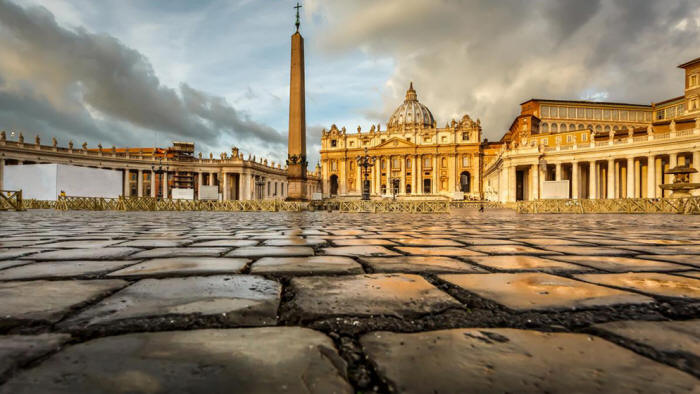|
Pope Francis has ordered the Holy See to transfer all of its financial assets into the Institute for Works of Religion, commonly known as the Vatican Bank, by Oct. 1.
The Holy See is the central government of the Roman Catholic Church and falls under the Episcopal jurisdiction of the pope in his capacity as the leader of the Catholic Church and the bishop of Rome.
Ben Armstrong, commenting on this news on his program "The Ben Armstrong Show," noted that the pope's order to get all of the Vatican's financial holdings pooled together is a sign that an economic collapse is fast approaching...
New rules prevent Vatican offices from holding assets outside the bank
In a document known as "rescriptum" or re-writing issued on Aug. 30, Pope Francis ordered the Holy See's financial and liquid assets that are held in other banks to be moved to the Vatican Bank within 30 days of September 1.
The pope's rescriptum also served as a legal document with "the nature of an authentic interpretation" of certain provisions in the constitution of the Roman Curia, the central and leading administrative body of the Holy See, which gives the pope the authority to do this.
This ability to make investments without the approval of higher authorities is what led to the Vatican's former Cardinal Secretary of State making a direct investment into a building in London which is currently at the center of a corruption trial.
The botched deal resulted in a loss of over 140 million Euros ($138.8 million) for the Vatican.
Before last month's rescriptum, the Secretariat of State, the office the secretary oversees, was known to own accounts in Swiss financial institutions, including Credit Suisse.
Due to the new rules, all assets in these accounts would have to be in the Vatican Bank by Oct. 1.
Officially, this move is the latest action in the pope's decade-long financial reform agenda.
According to the Institute for the Works of Religion's annual report, the Vatican currently has some 5.1 billion Euros ($5.05 billion) worth of assets under management and it made 18 million Euros ($17.84 million) in profits last year.
This takes into account the 50 million Euros ($49.56 million) in profits that the bank donates to the pope every year to pay for the Vatican's sprawling bureaucracy.
The Vatican Bank's profits have been falling since 2020 as the pope continues his reform agenda by slimming down the number of clients the bank deals with.
The bank currently only has 14,047 clients, down from 14,519 in 2021.
The pope wants the Vatican Bank to keep slimming down its client list until it only serves,
Watch this episode of "The Ben Armstrong Show" as Ben Armstrong talks about the pope pooling together all of the Vatican's assets:
|


